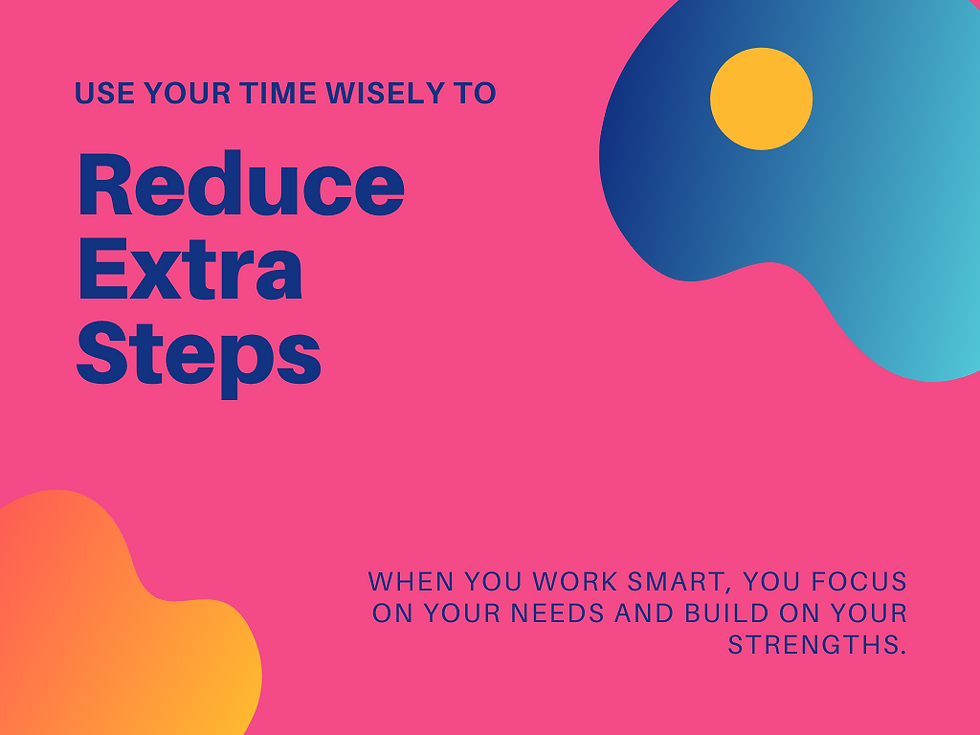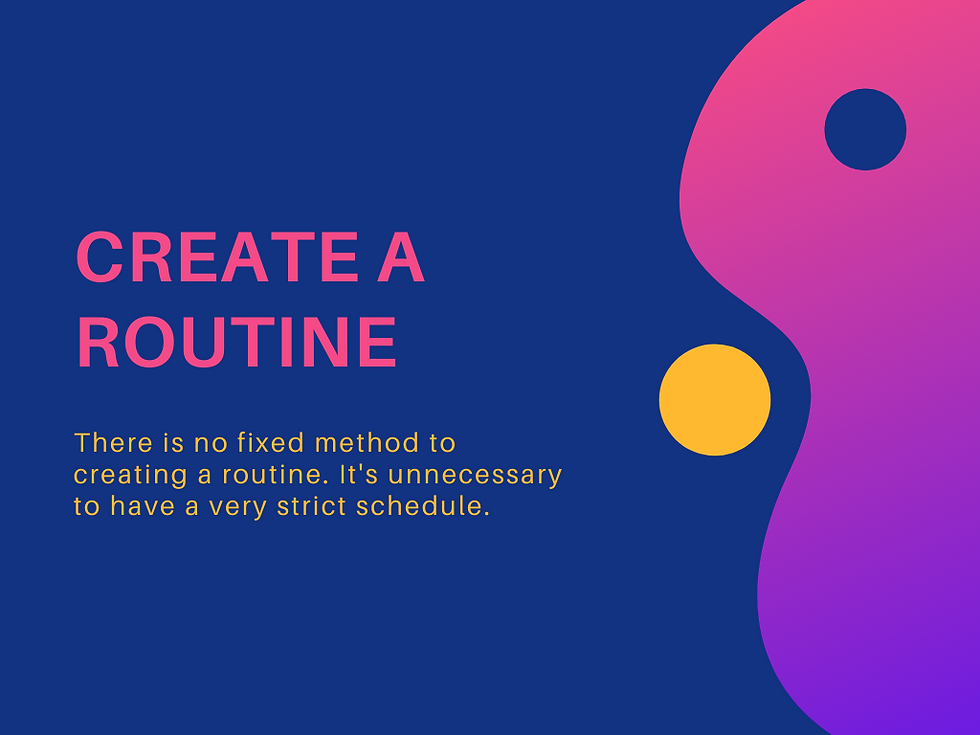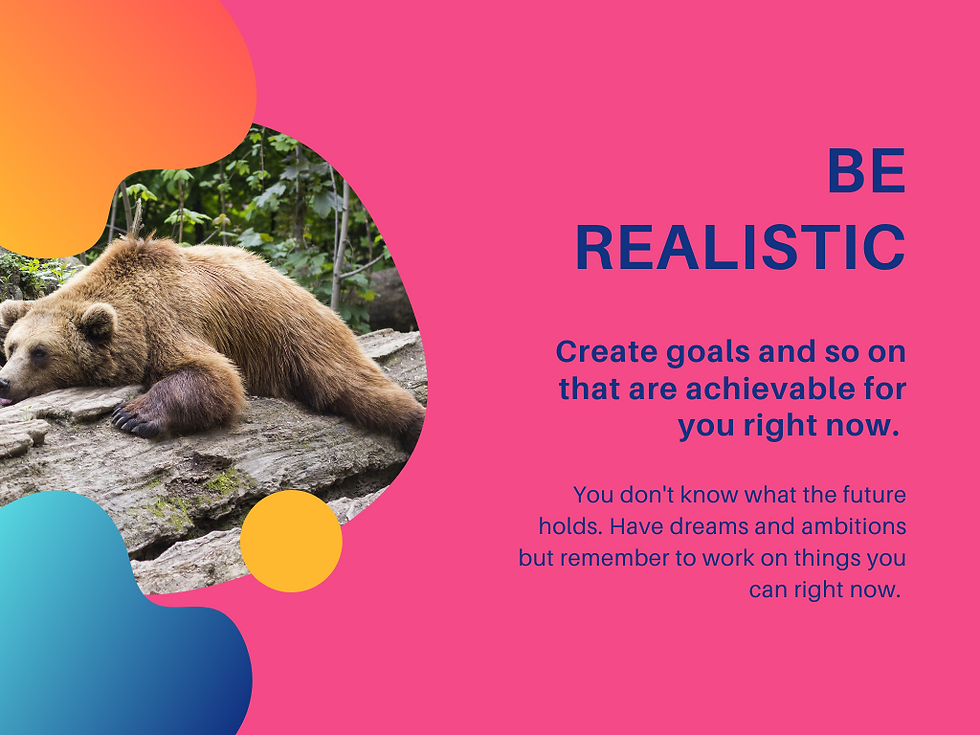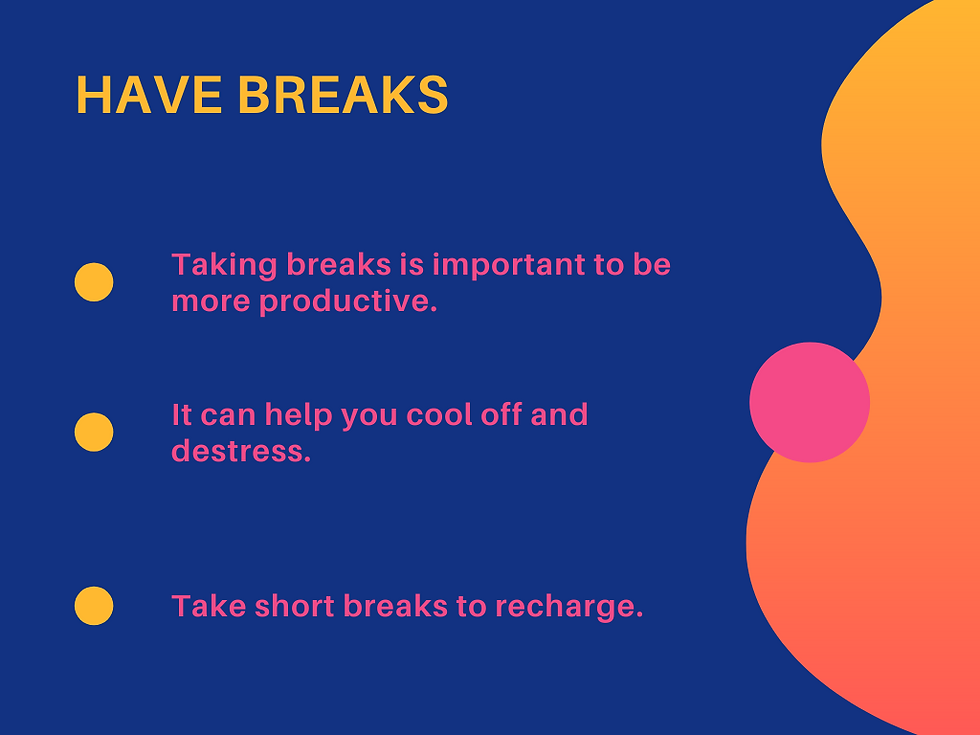7 Ways on How to Work Smart And Not Hard!
- Samantha

- Nov 11, 2020
- 4 min read
Updated: Jul 7, 2021
Ever wondered how to get more done in less time?
Let’s unravel the mysteries of getting more done in less time.
Before I continue, I would like to add that there is nothing wrong with being hardworking. In fact, we even put this in our resume as a positive!
Still, somehow being hardworking does not always pay off. We are familiar with the story of Nikola Tesla and Thomas Edison; we know who was more deserving of things, but it all came down to smart entrepreneur skills. Being hardworking is good, but we must also learn to play to our strengths.
Working smart means using your time wisely to reduce all the extra steps it would take to do something. When you work smartly, you focus on your needs and build on your strengths. This way you get some free time to cool off and relax.

How to Work Smart
1. Create a Routine
Creating a routine can benefit you as you have a set schedule for your chores and will be more efficient with time management.
This can be helpful as you get accustomed to your day-to-day tasks. It is unnecessary to have a very strict schedule, but one that is beneficial to you. Since lockdown, it’s been difficult to set a routine that we can stick to.
Starting small and not making vast changes initially can help you adapt to a new timetable. This helped me, as creating a routine made me feel more organized and gave my day structure.

2. Keep Your To-Do List Short
At some point, we all fall prey to the planning fallacy. This phenomenon is a strong tendency to believe that a task will take less time than it will. This is the reason we add more things to our to-do list than we should. We end up overestimating a time and underestimating the task.
To avoid this, remember how much time a task took in the past. When you think of future scenarios it will create a false idea that you have more time at hand. Remembering how much time and event previously took you can prevent this.

3. Be Realistic
Let's be honest, we all like filling our to-do list, and when we are not able to complete it bash ourselves up.
The more things you add to your day-to-day list, the more lethargic you may feel. Seeing the amount of work may get you tired faster than you can even say to-do list.
When you have a long list, your work never seems to get done and you won’t get the break needed. Even if you have accomplished most of the tasks you won’t feel as satisfied because you will see the things that are pending.
In short, add lesser items and prioritize your work. The most essential things should be done first.

4. Have Breaks
I’ve said this before, but taking breaks is crucial! Our brain and body need rest and we should give them that. One way we can function well is when we take some time off work and focus on ourselves.
Take a break where you really relax and not worry about your next task. The duration of the break depends on your workload and how tired you are.
If long breaks are not possible, then take short ones and spread them out throughout the day.

5. Set a Timer
If you find it hard to stay focused for a long time then set a timer. Work for a certain amount of time, and then take a break and continue this process. The forest app is excellent for this. You get the satisfaction of planting a tree and get your work done simultaneously.
For the allotted time you are working, put all your energy and focus on your work. You can reap its rewards through your break and striking it off your to-do list.

6. Avoid Multitasking
Multitasking gives us the illusion that we are doing more in less time. This makes us think that multitasking is beneficial when studies have shown it’s not. And it does more harm than good.
Multitasking hinders your ability to learn much and you can have difficulty in applying what you learned to a new concept.
Instead of multitasking, you can work on your projects in a shorter time span. If you have difficulty continuing one task for a long time, try doing a short amount and then switching. This way you can prioritize your work and there is no need to multitask.

7. Change Your Attitude
It's easy to allow yourself to fall at either extreme. The crucial thing is to change your attitude. This is probably the most difficult of all the points.
Remember change is the only constant and not all change is bad. To change your attitude you first need to acknowledge and accept your flaws. Only when you see and accept your flaws you will allow your attitude to change.
By changing your attitude towards life and things you help the people around you as well.
Gary Vee says,

Conclusion
As I end, I would like to add, there is no harm in being hardworking, but your efforts must pay off. Always play to your strengths and learn when you can.
Let's summarise all the points,
Create a routine for yourself to work smoothly.
Make your to-do list short and sweet.
Have realistic goals set.
Take breaks to relax and destress.
Set a timer and work during those hours without distractions.
Avoid multitasking because it's not as beneficial as it may seem.
Change your attitude for the better.
Hope you enjoyed this article, don't forget to like it if you did find it informative.




Here are some tips for working smarter rather than just working harder: - Set clear goals and priorities. Determine the most important tasks ...
LMS Expert